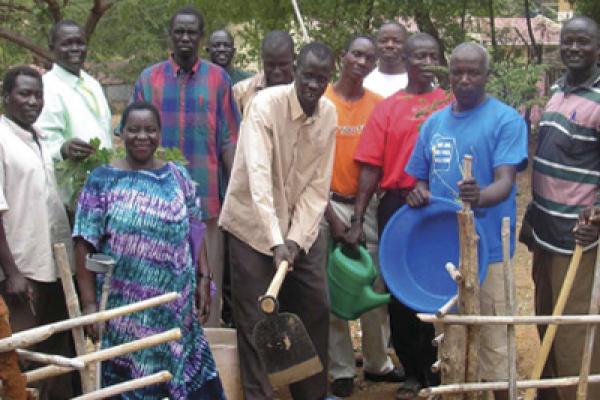God turns a desert into pools of water, a parched land into springs of water. And there God lets the hungry live ... they sow fields, and plant vineyards, and get a fruitful yield. By God's blessings they multiply greatly. -- Psalm 107:35-38
Once a week, the students at Bishop Gwynne Theological College in Juba, South Sudan, gather under the guava tree in the courtyard for an unusual sort of seminary lesson -- its focus is agriculture. In between learning about the martyrs of the early church and biblical source criticism, the students also learn about soil nutrients, photosynthesis, irrigation, pest control, and more. South Sudan, a poor region on the verge of independence after decades of conflict with the regime in the country’s north, has incredible agriculture potential. The students at Bishop Gwynne are part of the church’s broad effort to help the country realize that potential.
Robin Denney, a 29-year-old American missionary serving as an agricultural consultant to the Episcopal Church of Sudan, teaches the classes at Bishop Gwynne. On this day, she's discussing mulching. If farmers take discarded plant material and cover their fields with it, it will not only will prevent the growth of weeds, but also return nutrients to the soil as the mulch decomposes. She takes her class of 30 students out to the demonstration garden and points to the planting of sorghum, a staple grain in the region. The rows that have been mulched are taller and healthier-looking than those that haven’t.
Read the Full Article

